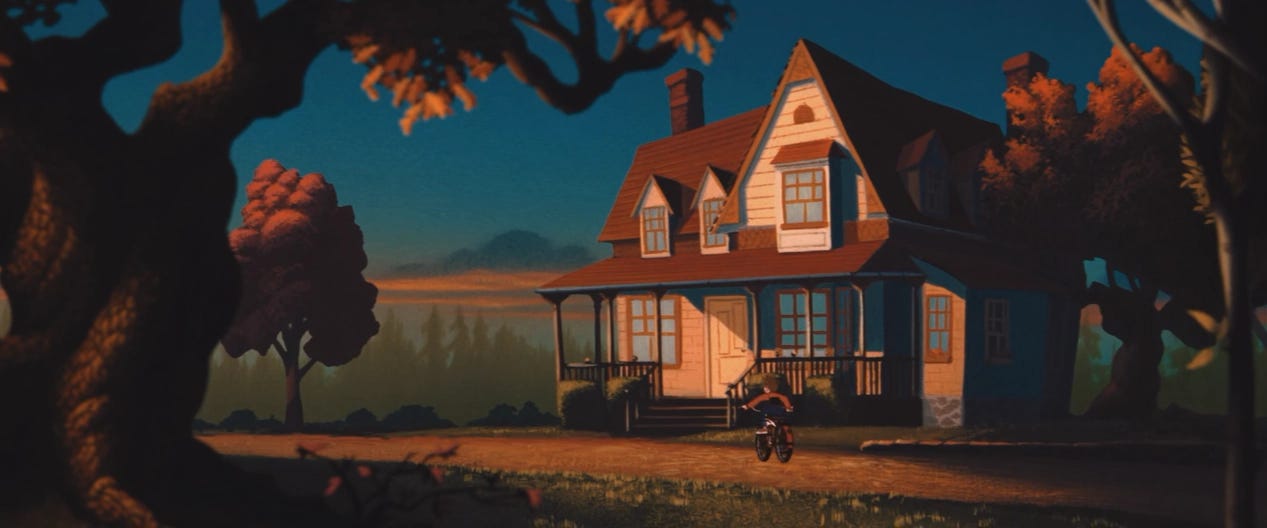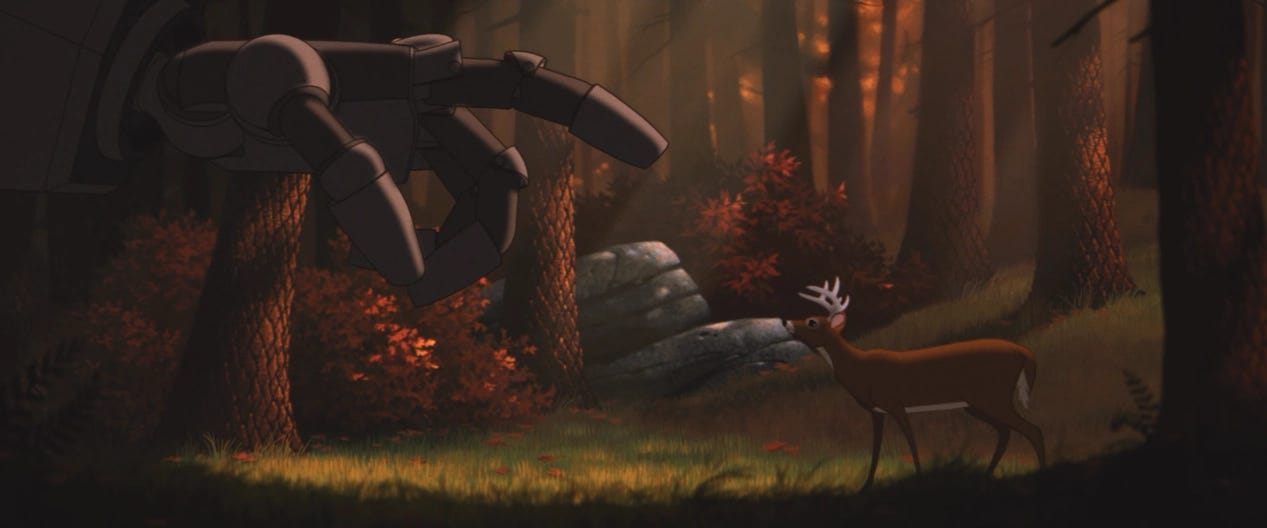Fairytale heroes can save princesses but they can also save giant robots. In fairytales, some characters are archetypes, but they fit so well in a story about friendship, choice and a zap of politics that you almost don’t see the cliche fraying at the edge.
Sometimes the hero only wants a cool toy to play with and sometimes the toy is a giant robot. Better, the new friend is a swift learner capable of empathy and anger. The robot is an archetype, an iron giant attuned to empathy which might as well be a teddy bear. (With access to civilization-ending weapons.)
In The Iron Giant, friendship endures regardless of species. A kid playing with a puppy will try to teach it basic actions and tricks, and the iron puppy responds as well as its towering arms and growling mouth can.
Like its titular metal friend, the movie has heart. It’s made of patched familiar elements: the single mom and the outcast son, the friendly (metal) stranger, the handsome bachelor, the pesky intruder dressed in unwelcome authority.
A large chamber of this beating heart glows with the giant’s simplicity. The robot becomes sad when hunters shoot a deer and mourns over loss of life which to humans may be trite.
The robot’s openness to humane emotions may be sudden and simplistic, but fairytales thrive on emotional simplicity and their wisdom derives from expanding such traits without complex debates.
The young hero is the one to recognize how the stranger is capable of understanding in spite of its original programming. This does not evade the danger of said programming, as the giant turns into its original violent form when attacked, but fairytale tensions remains low because the stranger has proven itself, indeed, for all intents and purposes, and we are simply waiting for the victory of friendship over enmity.
The movie is kid-friendly in its idealism which prevents destruction through understanding. A lot of stumbling and breaking are afoot, uncertainty about nature and nurture, striving to understand the strange creature and collective survival instincts stepping in to oppose it.
If The Iron Giant hearkens to Superman and similar adventures it’s because it’s just about the same trope with adjusted variables and this story is a comfortable retelling of some Superman comics, or vice versa.
The alien is one of two protagonists but Clark and the robot find themselves in similar contexts. Both are capable of vengeance but work to protect the innocent, both are aliens who see humanity as their own kind.
The Iron Giant is also a playful meditation on the classic Atomic Age, where fear of war may have been a daily occurrence and the space age poked its shiny technological head to signal both hope and tension. In a time of dwindling peace, governments and corporate giants are springs of both security and distrust, needing to reassure the people while never revealing their secrets.
The surreptitious nature of mega-institutions never fades completely, yet the atomic age holds a romance of its own, likely because of the excitement and anxiety brought by new tech development, the possibility to create unimaginable riches but also to raze the planet.
The story plays with this paranoia by making the government rep an unpleasant fellow and self-appointed enemy of the strange creature. Though the stranger manifests the will to adjust its nature and be friendly, the establishment acts with impunity and violence. All natural, as response and as villain.
‘Souls don’t die.’The defining quote of this friendship adventure. And the soul is gained through empathy, understanding and choice. The choice may be more or less conscious - as stories about thinking machines go, to choose empathy seems to be a glitch for the robot, and a natural impulse for Hogarth the young hero. The villain will not or cannot make said choice possibly because of natural inclination or refusal to understand the stranger.
As a good fairytale ending, wisdom is available to all by the end, potentially changing the villain. Regardless of form, if something aspires to understanding, to friendship, to good, it enriches itself with the experience of a soul which may be perennial.


